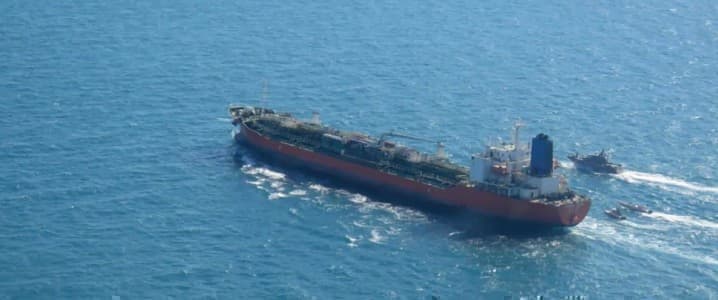Insurers Signal Fallout From Sanctions On Russia
- It appears that the push to punish Russia for its invasion of Ukraine is backfiring and hurting insurers and shippers in the West disproportionately.
- Russia’s growing shadow fleet of oil tankers is delivering crude despite insurance and price-cap sanctions.
- Despite the sanctions, Russia has managed to increase crude exports in the first months of the year.
A year ago, the Financial Times reported how maritime insurers were concerned that sanctions targeting Russian oil exports would disrupt global supply chains, lead to higher prices, and make life for shippers and insurers more stressful.
This week, the same publication sounded the sanction alarm again. But it is no longer a general concern about supply chains, oil prices, and the price cap compliance woes of shippers and insurers. It is now a much more direct concern about how cap-compliant companies are suffering lost business as Russia’s shadow fleet rises.
If the past year has taught the sanction enforcers anything, it is that there is a way around everything. They should have actually seen it with Iran and Venezuela, but apparently they didn’t, so they barraged Russia with sanctions expecting it to collapse within months.
Instead, Russian oil exports are on the rise—to the reported chagrin of its OPEC partner Saudi Arabia—despite the EU embargo and the price cap that the G7 came up with to make sure the global market remains well supplied. The group has hailed the cap as a success, ignoring evidence of Russian oil being sold over it.
“If the aim of sanctions is to make a state alter course, the test of success would be to ask whether the target country has changed its actions,” the head of marine and aviation at insurance trade body Lloyd’s Market Association wrote in a letter cited by the FT.
“What is unclear to industry is why policymakers believe that 20 years of Russian inculcation and perceived grievance will be materially altered through further constraints against shipping and insurance,” Neil Roberts also wrote in the letter, published on LinkedIn.
He then went on to warn that any further sanctions that are currently being mulled over by Western government were unlikely to have any impact on Russia foreign policy but would definitely hurt “the world’s legitimate floating supply system.”
It appears that there was one thing Western governments forgot while they were devising their sanction punch against Russian oil. What they forgot was the fact that there aren’t only insurers and shippers in the West.
There are Russian insurance companies willing to provide coverage for tankers. There are Indian insurers and Chinese shippers. And they are happy to do business, as evidenced by the recent news around Indian shipping company Gatik.
Gatik got punished by Lloyd’s Register for carrying Russian oil, presumably above the cap, but just days later, an Indian insurer stepped up to provide the necessary coverage for the firm’s vessels, as noted by Roberts in his LinkedIn post.
Then there is the shadow fleet of tankers operated by small, unknown companies that carries millions of Russian barrels of oil and fuels across oceans on a daily basis. According to Trafigura, as of February this year, the shadow fleet numbered some 600 vessels. The commodity trader referred to it as “huge”.
“There’s a lot of people talking about how they can be clever and get rid of Russian oil. But it is a vast volume that needs to find a new home,” Trafigura’s co-head of oil trading, Ben Luckock, told Bloomberg at the time. “I think in the early days maybe that’s okay, but as time progresses there will be difficulties in the products markets.”
These would be the same people that are currently discussing yet another package of sanctions that would also target countries doing business—including oil business-with Russia.
Per a Bloomberg report, the discussion is still ongoing, and it is unlikely that the EU would go straight to blacklisting and punishing Russia’s trade partners, such as India and China. Yet the next sanction package may well include measures targeting companies from these countries.
While the EU discusses more sanctions, its sanction push against Russia got a reality check from a Finnish think tank that tracks Russia’s oil exports and revenues. That think tank, the Centre for Research on Energy and Clean Air, found that Russia’s oil revenues are on the rise, too, after dipping in the first two months of the year, to return to levels from last November—before the EU embargo and the price cap kicked in.
This may well be why insurers are speaking up despite the danger of being criticized for not praising sanctions uncritically. It appears that the push to punish Russia for its invasion of Ukraine is backfiring and hurting insurers and shippers in the West disproportionately.
It was to be expected. There really could not be any way things could have played out, not in a world that depends on crude oil. As proven time and again, oil always finds a way to reach consumers. And while the embargo and the price cap certainly deprived Russia of some oil revenues, they seem to have deprived Western shippers and insurers of more than some revenues.
By Irina Slav for Oilprice.com
More Top Reads From Oilprice.com:
